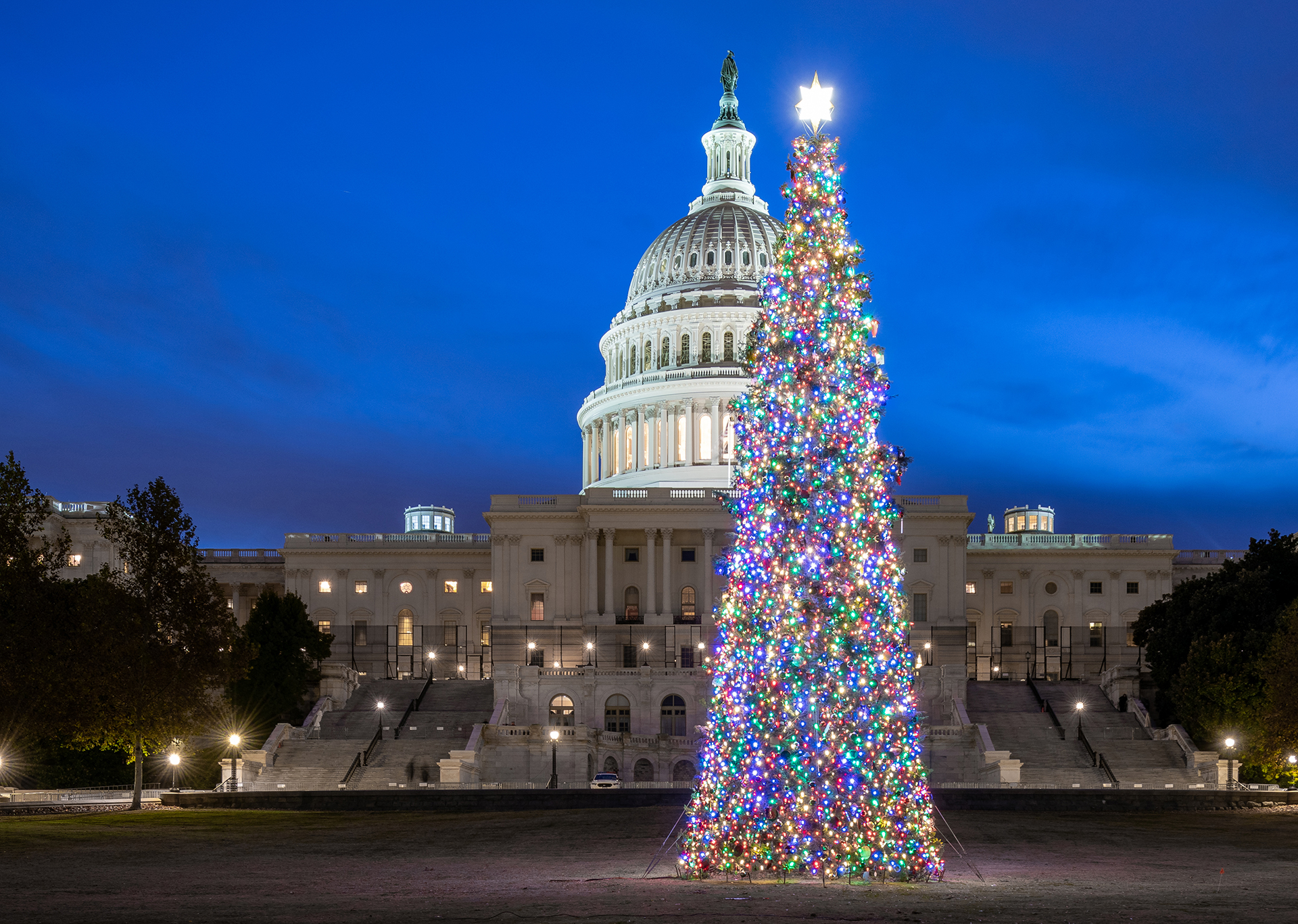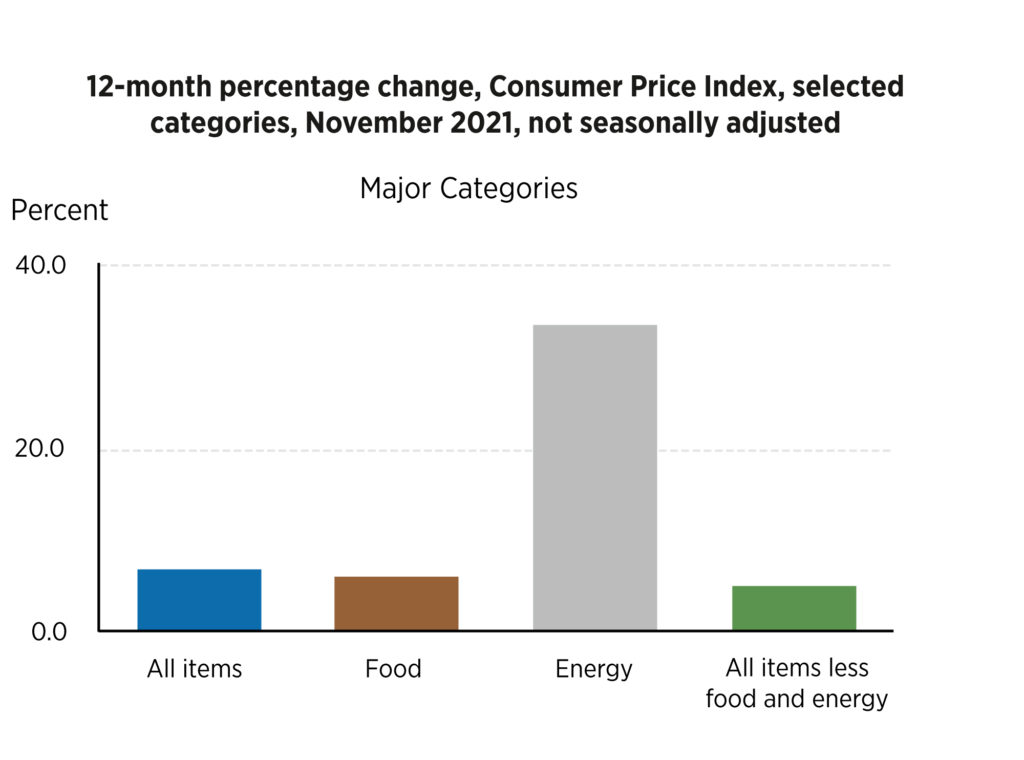

There is a World War II Marine acronym (SNAFU) that begins “Situation Normal” and applies to dysfunctional leadership. The term often applies to Washington; it certainly has in recent years. In February 2020, COVID-19 changed “normal” around the globe in ways likely to linger through at least 2023. This is a good time to reflect on 2021.
In January, President-elect Biden and his transition team faced a global pandemic that had taken 400,000 American lives and forced unemployment on ten million Americans, record-setting state and local government budget shortfalls, a two-month delay in determining control of the U.S. Senate, an uncooperative Trump Administration, House and Senate margins among the narrowest on record, a looming impeachment trial, increased racial tensions, civil unrest, and an unsustainable federal budget path. All this complicated the implementation strategy for Biden’s agenda and limited President Biden’s clear desire to “go big” in response to urgent challenges. Biden’s transition was the most challenging in the past 50 years.
Over the past 18 months, America has made remarkable progress on several fronts. First, Nobel Prize-worthy mRNA vaccine development in the U.S. and elsewhere produced an array of effective COVID-19 vaccines in record time. They swiftly received emergency use authorization for adults, then teens, and now elementary school children. In March, the $1.9 trillion American Rescue Plan Act (ARPA) boosted funding for a massive months-long U.S. vaccination campaign. Nine months later, the CDC reports that only 61% of Americans are fully vaccinated against COVID-19 and that those vaccinations require a booster to remain effective against severe illness and death from new variants.
Economically, vaccine distribution and an unprecedented $6 trillion in federal response to the pandemic sparked a dramatic recovery in 2021 Q2-3. Added revenues from the recovery and ARPA’s approval boosted state and local government coffers and set state budget surplus records in California and elsewhere.
On November 15, after months of wrangling, President Biden signed into law a component of his progressive “Build Back Better” economic agenda: the ten-year, $1.2 trillion Infrastructure Investment and Jobs Act (IIJA).
After months of negotiations among congressional Democrats, the House passed a roughly $2 trillion, ten-year Build Back Better Act (BBB) implementing key elements of Biden’s social agenda. At press time, it appears that Senate action on BBB will be delayed to 2022.
As the holidays approach, the President and Congress avoided two manufactured political crises:
- To avoid a partial government shutdown, Congress approved two FY22 continuing resolutions (CRs) funding agencies at FY21 levels through February 18, 2022
- Hours before Treasury Secretary Yellen’s December 15 deadline, the Senate voted 50-49 and the House voted 221-209 to boost the federal debt limit by $2.5 trillion, avoiding a first-ever U.S. default and extending it beyond the 2022 mid-term elections
Despite that progress, America reached a grim milestone with over 800,000 COVID-19 deaths, primarily among seniors. The rapid spread of Omicron, a new highly-contagious variant, threatens to overwhelm U.S. and global hospital networks. Omicron may trigger another wave of health mandates and international travel restrictions that could delay reopening of key sectors and slow the global recovery.
We are not epidemiologists, but with the pandemic spreading among billions of unvaccinated people around the globe (including many in areas with complex last-mile vaccination delivery challenges), COVID vaccinations may become part of the new normal fall health regimen for American seniors, front-line workers in the health, transportation, education, and food supply sectors, and families with schoolchildren. From a purely logistical standpoint, expect COVID to remain a global challenge for years.
America is now grappling with the results of Biden’s “go big” strategy. Unemployment caused by pandemic-driven shutdowns improved dramatically with many sectors facing labor shortages that should increase wages and benefits. But those shortages also aggravate supply chain delays that have contributed to a 6.2% inflation rate over the 12-months ending in October. According to the Bureau of Labor Statistics, that is the largest 12-month increase since November 1990. Over that period, the food index rose 5.3% and fuel prices jumped 30%.


Chart I. Source: Bureau of Labor Statistics
On December 15, Fed Chairman Powell stated, “the data we got toward the end of the fall was a really strong signal that inflation is more persistent and higher and that the risk of it remaining higher for longer has grown.” The Fed agreed to “taper” its quantitative easing program more rapidly and indicated that they would raise rates if the economy reached maximum employment.
Federal Budget IQ has argued that there are strong parallels between FY08-10 and FY19-23. After approval of the $787 billion ARRA stimulus bill in February 2009, procurement spending peaked the following fiscal year (FY10) before falling $120 billion over the next five years. The $6 trillion federal response to COVID-19 was spread over two years (FY20 and FY21). Barring emergence of a vaccine-resistant variant causing severe illness, the size of the emergency response should drop dramatically (over 85%) in FY22 and focus primarily on international vaccine distribution.
How does all of the above affect federal agency operational priorities and buying patterns?
With shutdowns and defaults off-the-table, expect negotiations on a two-year (FY22-23) budget cap deal to begin in earnest in January.
A clear political pattern for these deals has emerged over the past ten years. Expect Congress to seek increases in FY22 followed by essentially flat agency budgets in FY23. For agency managers, a two-year deal reduces uncertainty with lower prospects for shutdowns and extended CRs.
Federal agencies will operate under CRs at FY21 levels in a higher-than-projected-inflation environment for the first half of FY22.
As a result, when FY22 appropriations are approved, agencies will be forced to shift billions within approved budgets to protect agency headcount, preserve mission-critical priorities, and implement Biden’s funding and policy initiatives. To do that, expect agencies to delay planned new starts, draw down working capital funds, and backload procurement spending.
With the passage of the Build Back Better Act, we – this Democratic Congress – are taking our place in the long and honorable heritage of our democracy…– with legislation that will be the pillar of health and financial security in America…[F]ollowing the vision of President Biden, guided by the expertise and energy of our Chairs, Members and staff, we have a Build Back Better bill that is historic, transformative and larger than anything we have ever done before. We are Building Back Better.
Speaker Pelosi (D-CA),
November 19
Biden began the year with a narrow mandate that, despite support for elements of his bold, progressive agenda, continues to shrink. According to the latest data from FiveThirtyEight, Biden’s job approval rating now hovers at 43.7%.
Democrats hold a three-vote margin in the House. History, precedent, 2020 Census results, and congressional redistricting boost Republican prospects for regaining control of the House in the 2022 elections. Even with a wave of Senate GOP retirements, control of the 50-50 Senate is also up for grabs.
Aware of the polls and knowing that history favors a political course correction in 2022, GOP brinksmanship has waned since the November 2021 elections as evidenced by Senate Republican Leader McConnell’s (R-KY) instrumental role in the recent debt limit increase. Why? Allowing a debt limit bill to pass with a simple majority sets a precedent McConnell may want to repeat if he becomes Majority Leader or House Republican Leader McCarthy (R-CA) becomes Speaker next year.
The 2021 elections convinced Speaker Pelosi (D-CA) that legislative results, including enactment of the Build Back Better Act, can buck the historical mid-term election trend.
With ongoing negotiations among Senate Democrats, Senate Majority Leader Schumer’s (D-NY) Christmas deadline for a Senate BBB vote is unattainable.
Time continues to erode prospects for BBB in the Senate. The best chance for enactment of this sweeping legislation has passed, but experience has taught us not to bet against Speaker Pelosi.